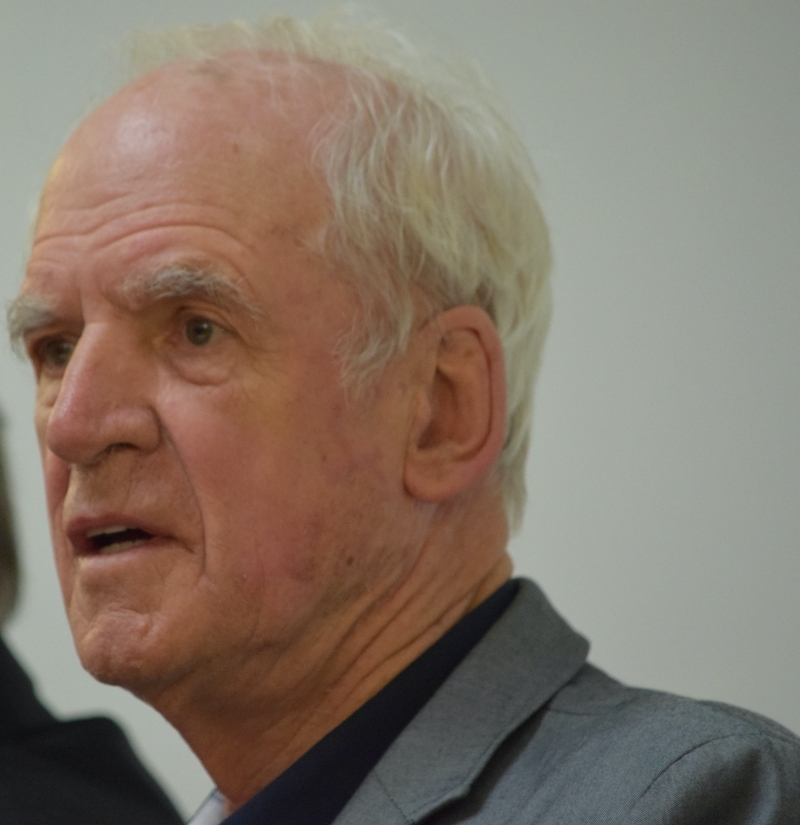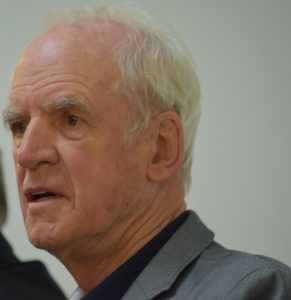In this interview, Vladimír Volráb speaks to philosopher Charles Taylor on the role universal spirituality has had throughout the pandemic crisis and what practicing meditation can do in challenging times.
In the upcoming on-the-ground retreat from Bonnevaux, Are We Making Progress?’ A Residency with Charles Taylor, 17th – 22nd May, he will ask if history can be seen as the site of slow growth in ethical vision. Dare we say we are even getting better?
You deal with a society in your work. It seems to me that many people in this global crisis lost their confidence in this world and its structures. They are in health danger; they lost their jobs and their future is very unpredictable. How will it impact our western world?
I think the whole corona virus crisis shows some important things about our societies, our contemporary Western democracies. Some are very bad things, but one is very en-heartening.
The bad things first. The crisis shows how badly we have let certain of our public institutions run down and decay. In this case, it’s particularly the health services, and those related to the care of the elderly. It’s scandalous that in Western societies which have been getting richer, as measured by GDP, over the last decade, that these services have been squeezed by “austerity”, and other cost-cutting measures over the last decades. Particularly in view of the fact that our societies have been aging.
Part of the reason is that we have been seeing our economies as mainly aimed at producing more and more consumer goods for individuals. This is what we have really considered “growth”; and this “growth” has been our prime good. The public sectors have been squeezed, because expenditure on these didn’t contribute to “growth”, i.e. producing and selling more and more individual goods. This has been at the root of our ecological crisis, and now we see that this has hampered our response to the pandemic.

We are experiencing a lot of help and care among people in our societies, is it that one good thing in a crisis?
Yes, there’s the surprisingly good revelation. While our concentration on individual goods showed a thoughtless and radical individualism, suddenly, there is an extraordinary outburst of solidarity, gripping just about everyone in our societies. People are suddenly very concerned about the fate of older people in intensive care in hospitals. There are demonstrations of gratitude and appreciation for health workers, whose pay and conditions (I’m talking about nurses here in Canada) have been squeezed in recent decades.
What does this show?
It shows that there are sources of solidarity which are implicit in our modern democratic societies. These are countered by all sorts of divisions, about politics and culture, etc., which usually counteract them. But when you get to a danger that threatens everybody, they come out. It’s like when we’re at war, a comparison which is always being made these days.
Does that mean that spirituality has a little to-do with universal solidarity?
Not at all; it seems clear to me that outside of the “war” situation, spiritual sources often play a big role in leading people to feel solidarity with and help others, regardless of major differences. These sources help to foster unconditional solidarity, including beyond the borders of one’s own country.
But why doesn't for example the threat of climate change trigger the "war" consciousness?
After all, climate change will cause death on an unimaginable scale, far beyond Covid-19. I think the obstacle there is that people can’t get their heads around the dangers of climate change. It’s too much a matter of the middle to remote future. People don’t know how they can form the kind of world alliance which can be effective; so they end up just turning off, changing the channel, and watching the football final, or whatever.
How does a meditation practice help you in this time of crisis?
I think it is plain that the deep concentration on the mantra is a strong antidote to the kind of panic that the coronavirus can easily arise in us.
About Prof. Charles Taylor

prof. Charles Margrave Taylor, CC, GOQ, is a Canadian philosopher, political theorist and public intellectual. Most of Taylor’s academic career was spent at McGill and Oxford University. His work bridges the gap between philosophical theory and political action and have covered a range of subjects including multiculturalism, modernity, humanity, morality, artificial intelligence, language, social behaviour and Canadian politics. He was appointed a member of the Companion of the Order of Canada, the country’s highest civilian honour, in 1996. He was also a winner of many prizes including the Templeton Prize for Progress Toward Research, the Kyoto Prize for significant contributions to the scientific, cultural, or spiritual betterment of humankind (2008), and the John W. Kluge Prize for Achievement in the Study of Humanity (2015). His writings have been translated into more than 20 languages.




